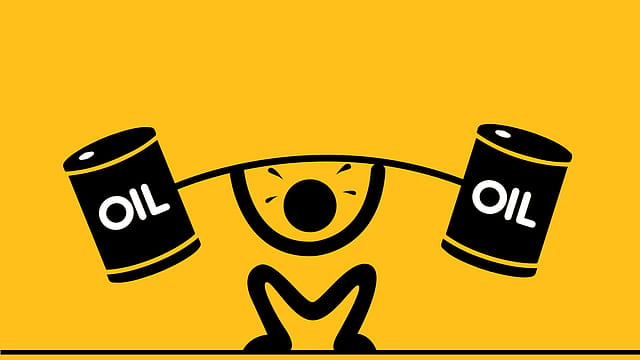Govt cuts windfall tax on crude; here’s how oil stocks reacted
ADVERTISEMENT

The central government on Tuesday slashed windfall tax on domestically produced crude oil, while it raised export duty on diesel and aviation turbine fuel (ATF) in sync with rise in international oil prices. The cut in windfall tax will provide big relief to the oil marketing companies such as state-run Oil and Natural Gas (ONGC) and Oil India, as well as private players like Reliance Industries and Adani Total Gas.
The decision to cut the windfall tax on crude oil production received a mixed response from oil stocks. The S&P BSE Oil & Gas index was trading flat with a slightly negative bias in early deals, in sync with the broader market, led by a fall in Adani Total Gas, Reliance Industries, Bharat Petroleum Corporation Limited (BPCL) and Petronet LNG shares. On the other hand, ONGC, Hindustan Petroleum Corporation Ltd (HPCL), Gujarat Gas, Indraprastha Gas, GAIL India, and Indian Oil Corporation gained up to 1%.
Shares of ONGC, the country’s largest natural gas explorer, topped the sectoral gainers’ chart by rising more than 1%, while Adani Total Gas was the top laggard, with the share price falling 1% on the BSE. Reliance Industries, the country’s most valued firm, was also under stress, falling up to 0.6%.
Meanwhile, the BSE benchmark Sensex was trading 80 points down, or 0.13%, lower at 61,041 levels, tracking mixed cues from global peers.
The ministry of finance in a late night notification on Tuesday said it slashed the windfall tax on export of locally produced crude oil to ₹9,500 per tonne from ₹11,000 per tonne, with effect from November 2. However, export tax on aviation fuel (ATF) has been raised to ₹5 per litre from ₹3.50 per litre while on diesel it has been increased to ₹13 per litre from ₹12 a litre, the finance ministry notified.
After a hike in ATF export levy, shares of airline companies InterGlobe Aviation, the parent company of low-cost carrier IndiGo, and SpiceJet rose up to 0.5%. Jet fuel or Aviation Turbine Fuel (ATF) prices make up for almost 40% of the running cost of an airline.
The FinMin reviews cess levy fortnightly taking into view the global crude oil prices. The Centre first introduced a cess of ₹23,250 per tonne by way of special additional excise duty (SAED) on domestically produced crude oil on July 1, 2022. Import of crude oil was not subject to this cess. The Centre decided to impose a windfall tax on oil export to tap into the huge profits oil producers and refiners were making on oil export. The measures were supposed to compensate for the excise duty cut on fuel, which was announced in May 2022.
The prices of Brent and U.S. crude have witnessed a sharp correction in recent time, with international benchmark Brent falling below $90 per barrel, its lowest level since early February this year, amid concern that the global economic slowdown will weigh on the demand outlook.
On Wednesday, the Brent oil for January delivery was quoting at around $96 a barrel, while the U.S. West Texas Intermediate (WTI) crude futures were near $90 a barrel. Crude oil prices edged higher amid optimism that China, the world's second-largest oil consumer, could reopen after strict Covid curbs, while fall in the U.S. crude stockpiles also lifted prices.